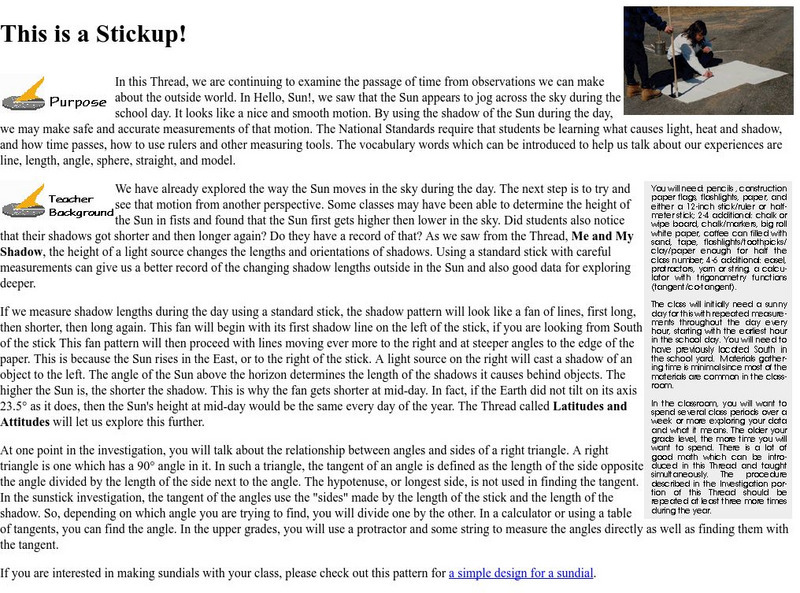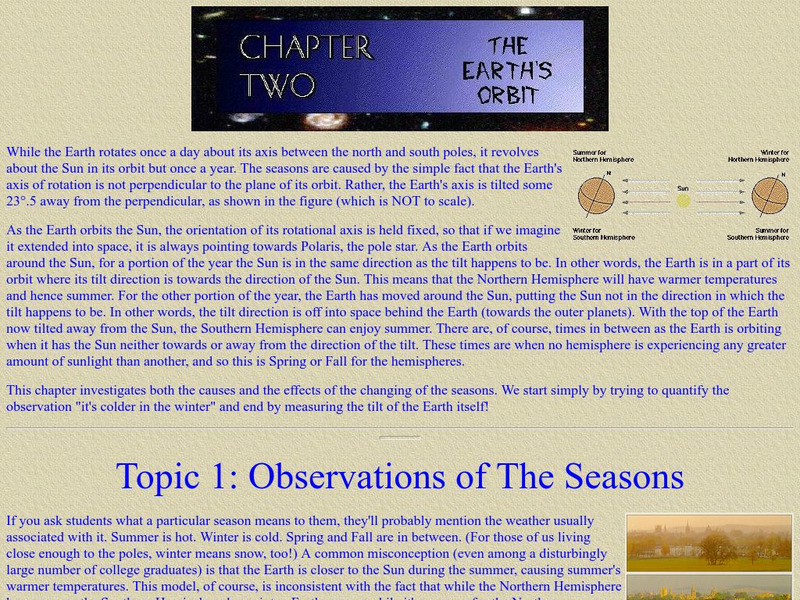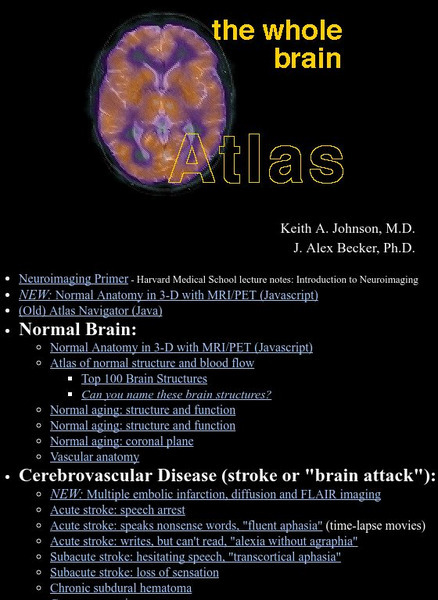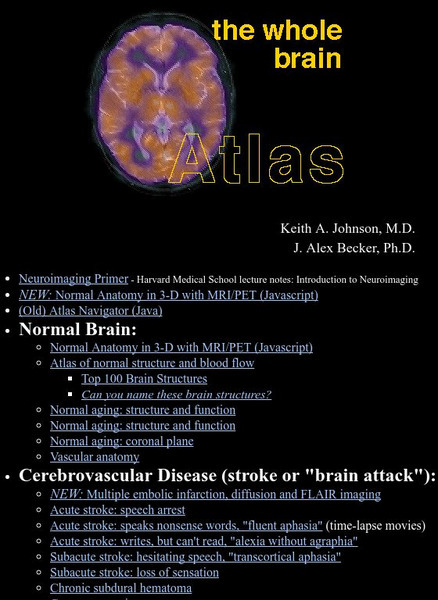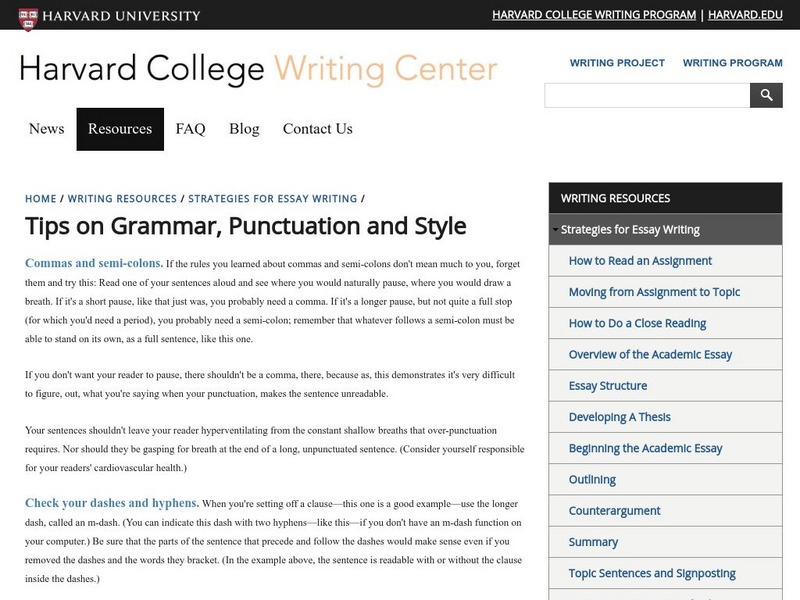Harvard University
Harvard College Writing Center: How to Do a Close Reading
A brief explanation of the tasks involved in doing a close reading in preparation for writing. This writer breaks the process into three steps which involve annotating the text, looking for patterns, and asking questions of the text.
Harvard University
University of Harvard: This Is a Stickup!
Students are taught how to make a sundial. The relationship between angles and the sides of a right triangle are explored. Great lesson plan ideas with plenty of background information. The lesson is adapted for grade levels k-6 with...
Harvard University
Harvard University: The Sun
Includes a brief history of the sun's development and its future. Also provides simple statistics, solar activities, and references.
Harvard University
Eyes on the Sky, Feet on the Ground: The Earth's Orbit
Students perform many inquiry activities related to Earth's orbit. Included are recording daily temperatures, observing the sun's path over several weeks, tracking sunrise and sunset times, and angle of sunlight. Diagrams make lessons...
Harvard University
Harvard Medical School: Hypothalamus
CT scan identifying the hypothalamus. Also identifies some other brain structures.
Harvard University
Arsenic Contamination of Ground Water in Bangladesh
This site talks about related problems to groundwater contamination in Bangladesh and the challenges that face the people there.
Harvard University
Harvard University Library Open Collections Program: The Yellow Fever
Students investigate the yellow fever epidemic in Philadelphia. Some topics explored are Benjamin Rush, the Santo Domingan influence, and background information on the yellow fever. Additional resources include web pages, references, and...
Harvard University
Harvard University Library Open Collections Program: Tuberculosis
Students investigate tuberculosis in Europe and North America. Some topics explored are causes, diagnosis, and the sanatoria movement. Additional resources include web pages, manuscripts, references, and publications.
Harvard University
Harvard University Library Open Collections Program: Syphilis
Students investigate syphilis. Some topics explored are origins, diagnosis, and treatments of syphilis. Additional resources include web pages, references, and publications.
Harvard University
Harvard University Library Open Collections Program: Spanish Influenza
Students investigate Spanish influenza in North America. Some topics explored are reactions, responses, and legacies of Spanish influenza. Additional resources include web pages, manuscripts, references, and publications.
Harvard University
Harvard University Library Open Collections Program: Boston Smallpox Epidemic
Students investigate the Boston smallpox epidemic that occurred in 1721. Resources include web pages, references, and publications.
Harvard University
Harvard University Library Open Collections Program: The Great Plague of London
Students investigate the Great Plague of London that occurred in 1665. Some topics explored are the Great Plague in fictional literature, Samuel Pepys, and William Boghurst. Additional resources include web pages, references, and...
Harvard University
Harvard University Library Open Collections Program: Cholera Epidemic
Students investigate cholera epidemics in the 19th century. Some topics explored are causes and treatments of cholera. Additional resources include web pages, manuscripts, references, and publications.
Harvard University
Harvard University Library: Benjamin Waterhouse, 1754 1846
Brief biographical facts on the medical career of Benjamin Waterhouse, the first doctor to test the smallpox vaccine in the United States.
Harvard University
Harvard School of Public Health: The Nutrition Source: Fiber
Why is fiber important to our diets? How can we get the fiber we need from the food we eat? In addition to answering the above questions, this website also describes the diseases and disorders we can avoid by eating fiber-rich foods.
Harvard University
Harvard Medicine: The Whole Brain
Detailed color images of the human brain, both normal and with various brain diseases, including Alzheimer's, Huntington's, multiple sclerosis, stroke, and AIDS dementia.
Harvard University
Harvard Medical: The Whole Brain Atlas: Neuroimaging
Hundreds of images of brain structures are here, including normal and diseased brain parts.
Harvard University
Harvard Univ.: Harvard College Writing Center: Ending the Essay: Conclusions
This resource teaches how to write a conclusion for an essay. Also includes a few pointers on how not to end one.
Harvard University
Harvard University: Beginning the Academic Essay
This resource explains how to write an essay. Provides information regarding length, order, and opening strategies. W.9-10.1a claims/intro/org
Harvard University
Harvard Writing Center: Tips on Grammar, Punctuation and Style
Rather than lists of rules, this site provides practical advice on the use of commas, semicolons, dashes, hyphens, abbreviations, acronyms, split infinitives, "this," "that," italics, and underlining. CCSS.ELA-Literacy.CCRA.L.2
Harvard University
Harvard Medical School: Thalamus
CT scan identifying the thalamus. Also identifies other brain structures.
Harvard University
Harvard Univ.: Chandra X Ray Observatory Center
The Chandra Observatory uses x-ray telescopes to learn more about the make-up of the universe. To learn more about x-ray telescopes and to see what they reveal, click here for the official Chandra X-ray Observatory website.
Harvard University
Field Guide to X Ray Sources: Brown Dwarfs
Brown Dwarfs are explained. Includes illustrations.
Harvard University
Quasars and Active Galaxies
This site provides information about quasars and active galaxies. Includes a glossary of important terms.



